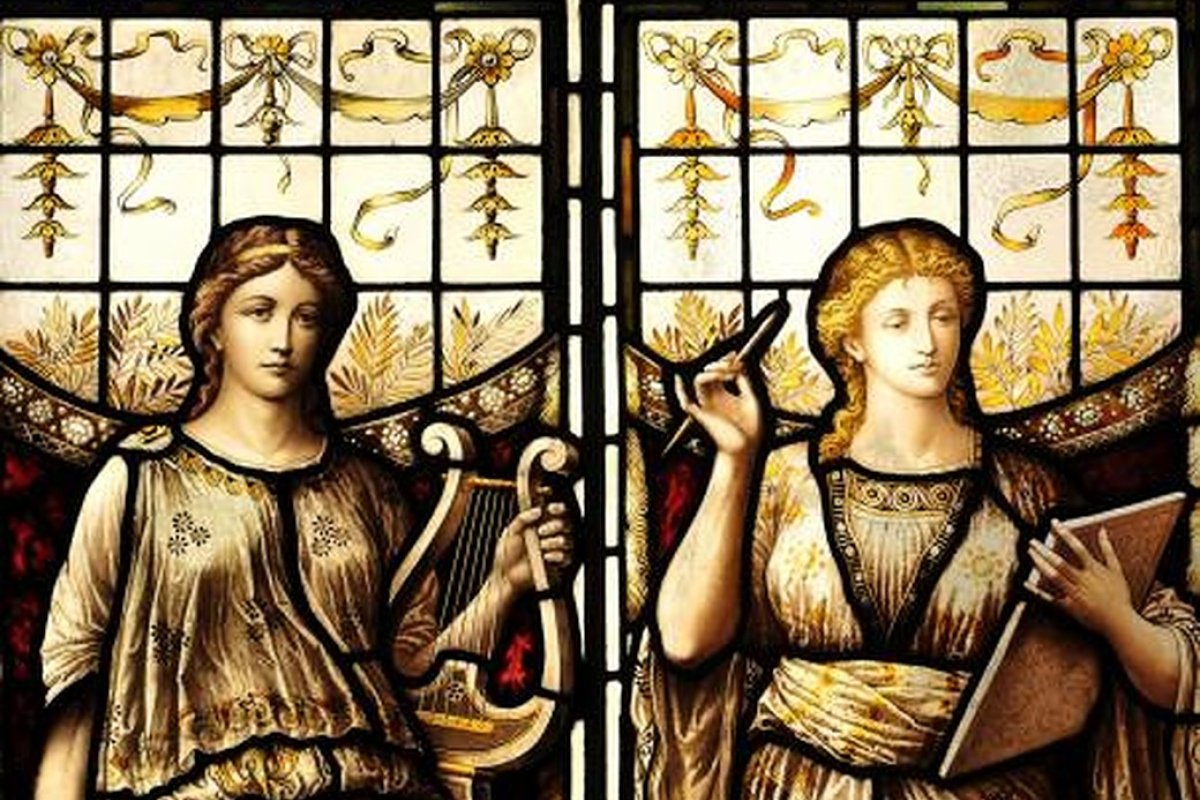
Songs In Dark Times
When marked by piety and ambiguity, songs can fill a void in our dark times. Perhaps it is time to sing again...
§1
We live in dark times: war, global pandemic, climate change, injustice abounding, parading autocrats, and virulent nationalism. Pessimism is on the rise, especially in the USA in every sector of society.[1] Over two hundred American cities have endured mass shootings, and some of these shootings, like in Buffalo, were driven by murderous racial hatred.[2] The question is not that we are living in dark times, but how are we living in dark times? What are the aims and means to live in this time without losing hope to false forms of consolation?
In 1955 Hannah Arendt, the great political thinker, published a book titled Men in Dark Times in which she surveyed the lives and actions of prominent men: Karl Jaspers, John XXIII, and others, living in and through the dark times of the early twentieth century. With her usual incisiveness, Arendt knew that her chosen subjects did not share much among themselves other than living in an age of tyranny and fascism, an age of moral disaster and yet somehow also artistic achievement.
So, dark times generate artistic responses to motivate the struggle for justice and hope. Consider the songs of the Civil Rights movement. "We Shall Overcome." There are also the slave songs during the brutal scourge of American slavery. Think too of Woody Guthrie's anti-fascist songs or the protest songs of Bob Dylan. “The times they are a changin'.” Around the world, people have often broken into song for empowerment and consolation during the dark times of their lives.
Music can steel one's heart and overcome fear. Let's ponder this fact in our hard times by looking at some songs from other eras. Where are the songs for our dark times?
§2
Over the last weeks, I attended academic conferences and also lectured in Germany. Our conversations were peppered with the latest news story about the war in Ukraine. One attendee was housing a Ukrainian refugee and told us stories of the destruction. War, resistance, and hope hovered over our conversations. Amid the hubbub going on around us, I was delighted to be invited by Bishop Heike Springhart (Evangelical Church in Baden) to a concert by the University Chorus in the Peterskirche at Heidelberg University. The concert, under the direction of Michael Sekulla (Universitätsmusikdirektor) was titled Dona Nobis Pacem; Verleih Uns Frieden (Grant us Peace; Grant us Peace).
The choir’s voices seemed to hang in the air amid the church's pillars and swirl around the vaulted ceiling of the Peterskirche. Each piece pled for peace in dark times; they rhymed with anxiety and yet hope. No less than sixteen were sung or played on the organ by composers ranging from Shostakovich to Bach and from Benjamin Britten to Brahms and Rachmaninoff. What grasped me was the fact that the songs and the concert itself were both a protest against forces of destruction but also a realistic, if at times ambiguous, expression of hope grounded in religious convictions.
§3
Sometimes, sightings of religion are heard and not seen. Here are a few examples from the concert (translations of German are mine). Francis Poulenc composed "Timor et Tremor" (Fear and Terror) to a Latin penitential text at the outbreak of World War I, a time of slaughter and suffering.
God hear my prayer
because you are my refuge
and my strong support.
The piece shows with powerful realism how terror and fear in wartime settle over people to blanket them in darkness. And yet, God, the all powerful, is a refuge beseeched to give support. This work is at the same time protest and pious confidence. It is a hymn to the fact that human powers, even those of destruction, are not ultimately sovereign.
A step back in time, consider Heinrich Schütz's seventeenth-century "Verleih uns Frieden gnädiglich," composed to a hymn by Luther during the concluding months of the Thirty Years’ War.
Verleih uns Frieden gnädiglich, Grant us peace,
Herr Gott, zu unsern Zeiten! Lord God, in our time!
Es ist doch ja kein andrer nicht, There is still no one other
Der für uns könnte streiten, Who could fight for us,
denn du, unser Gott alleine. But you, our God alone.
There is ambiguity here. Who is God to fight for in a religious war? Does God choose between Christians as they slaughter each other in towns, villages, and fields? How can that fact--if it is true--grant peace when it is sung mindful of the dead bodies of other believers? Again, the sovereignty of divine power is source of protest and prayer for peace. But one cannot help but be struck by the ambiguity of the work. Shocking, in some parts of what was then Germany some fifty percent of the populace died at the hands of war or disease. Grant us peace!
Especially powerful was Jehan Alain’s (1911-1940) Litanies für Orgel written in 1937, the year his sister died. A mere three years later, at the age of twenty-nine, he would die in World War II. The litanies are headed by a quotation:
"Wenn die chistliche Seele in ihrer Verzweiflung keine neuen Worte mehr findet, um die Barmherzigkeit Gottes anzuflehen, dann wiederholt sie ohne Unterlass dieselbe Anrufung mit lebendigem Glaube. Die Vernunft erreicht ihre Grenze. Nur der Glaube folgt ihrem Flug gen Himmel."
"When the Christian soul is in distress and finds no more new words to implore God’s mercy, then it repeats without ceasing the same plea with living faith. The limit of reason is reached. Only faith follows its flight to Heaven." (My emphasis) [3]
In dark times, reason itself is confronted with its limits even as people rely on the same prayers and same songs revivified in the present. The machinations of the human mind grasping to make sense of people's distress faulters on the border, the limit (Grenze), of horror. But faith, we are told, ascends to heaven to beseech God's mercy--and not simply implore God's power. While distress exceeds the limits of reason, so, too, hope goes beyond reason.
§4
People need songs in dark times. The religions have understood that fact. Longing for peace, the trial of fear and anxiety, and fragile hope as well, seam the centuries and break out in song. The day before I left to return to the USA, Ukraine won Eurovision 2022 when the hip hop band Kalush Orchestra performed "Stefania," originally written about a mother's love but now an anthem to the Ukrainian people. Songs marked by piety and ambiguity can fill a void in our dark times when the rage of war and pestilence and ignorance seem to reign. Perhaps it is time to sing again, old and new songs, because that is how one can live through dark times.
[1] See times.com/2022/05/10/opinion/can-we-still-be-optimistic-about-america.html
[2] See https://www.nytimes.com/live/2022/05/16/nyregion/shooting-buffalo
[3] For a brief discussion of the work see https://www.hyperion-records.co.uk/dw.asp?dc=W3451_GBAJY946760


